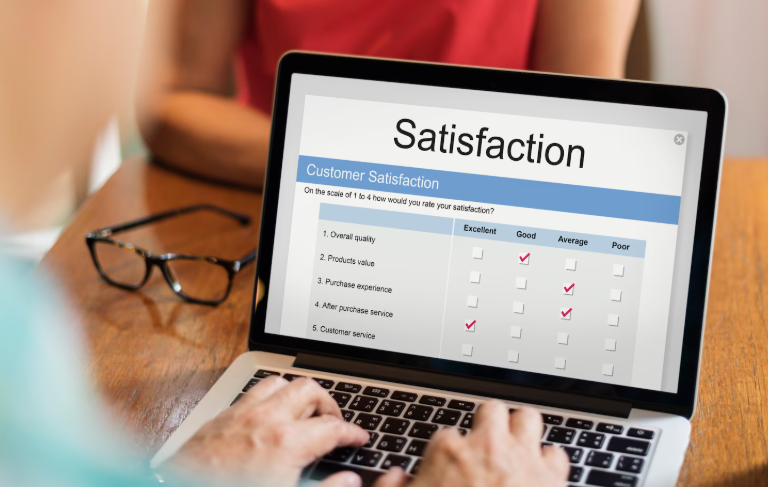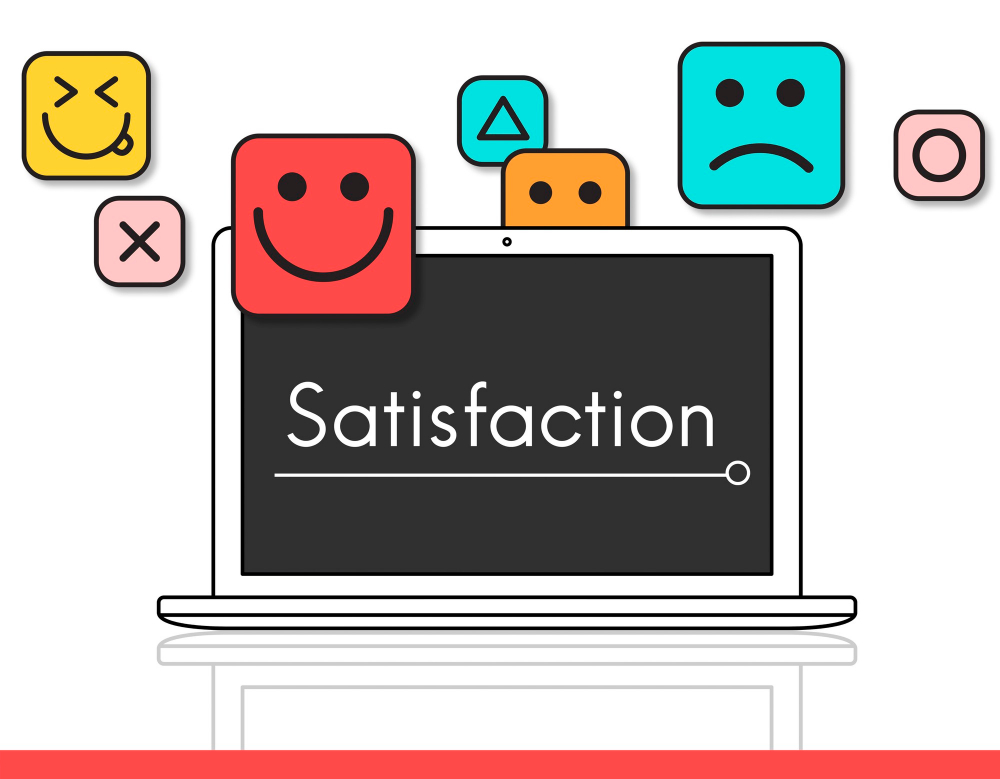A damaged online profile rarely happens in a single moment, even if it feels sudden. One rough week of delayed deliveries, a staffing gap, a misunderstood policy change, or a spike of unfair reviews can quickly turn your Google rating or marketplace score into a visible trust problem. Prospects don’t read your internal context—they read headlines in reviews, scan the newest comments, and decide if your brand is “safe” to try. That’s why a strong rating recovery strategy isn’t about chasing stars; it’s about rebuilding confidence with consistent experiences, faster resolution, and clear signals that you listen and improve.
In this guide, you’ll learn a structured, repeatable recovery process that works whether you’re a local business, multi-location brand, or service provider competing in a review-driven market. We’ll cover how to stabilize damage, prioritize fixes that move sentiment, generate new positive reviews ethically, optimize profiles for trust, and sustain gains with monitoring and reporting. If you want expert help applying these steps across platforms with response management and analytics, explore AiPlex ORM’s services by clicking here and their dedicated review management support here.
What to set up before you start your rating recovery strategy
Before you attempt recovery, get clear on one thing: ratings are an outcome, not the lever. The levers are experience quality, response behavior, review volume velocity, profile credibility, and platform compliance. If you only focus on “getting the rating back up,” you’ll likely over-index on quick tactics that don’t last, like generic response templates or inconsistent review requests. A durable rating recovery strategy starts by building a simple recovery system: centralized tracking, theme tagging, owner assignment, and weekly actions tied to measurable reputation KPIs.
It also helps to accept that recovery is a compounding process. You don’t erase damage—you dilute it with better experiences and better proof, while actively resolving legitimate complaints and removing content that violates platform policies. Your goal is to make the newest, most representative feedback align with the experience you want prospects to expect. When that alignment becomes consistent, the rating follows. If you need to run this loop across multiple platforms with structured response and monitoring workflows, AiPlex ORM’s response management and review analytics can support execution at scale: https://aiplexorm.com/services/response-management.
Identify the true drivers of low ratings with theme and sentiment analysis
Start by separating emotion from evidence. A damaged profile can come from three main sources: a real experience breakdown, a perception gap (customers misunderstand what you offer or how policies work), or an integrity issue (spam, fake reviews, or coordinated attacks). Read your most recent 30–50 reviews and tag each by sentiment (positive, neutral, negative) and theme (delivery, pricing, staff behavior, product quality, support speed, returns, cleanliness, etc.). This gives you a root-cause map that is far more actionable than a simple average rating, because you can see what is repeating and what is rare.
Next, look for “severity themes” that punch above their weight. A small number of reviews mentioning safety, fraud, discrimination, or unethical behavior can damage trust more than a larger set of mild complaints. Mark these as escalation items and plan a rapid response and internal review. This is also where you check for patterns that hint at fake review activity—repeated phrases, suspicious profiles, and sudden bursts of one-star posts. By diagnosing drivers early, your rating recovery strategy becomes targeted: fix what’s real, clarify what’s misunderstood, and challenge what violates policy.
Map your review ecosystem across platforms and touchpoints
Many brands try to recover by focusing only on Google, but damaged perception often spreads across multiple surfaces: Facebook, industry directories, marketplaces, app stores, and even search results that display third-party ratings. List every platform where your audience researches you, then rank them by impact on conversion. For local intent, Google Business Profile usually dominates; for certain industries, niche portals may carry more weight. This matters because each platform has different moderation rules, response features, and visibility logic, which means your recovery actions must be platform-aware.
Then, connect platforms to customer touchpoints. If customers complain on Google after in-person visits, but complain on Facebook after support interactions, you’ve learned something about where friction occurs. Also note that review velocity differs by platform; some sites update slowly, others move fast. A smart rating recovery strategy uses a unified view so you don’t “fix” one platform while another quietly continues to deteriorate. If you want a consolidated approach that tracks reviews across sources and supports coordinated actions, AiPlex ORM’s review management services are built for cross-platform visibility: https://aiplexorm.com/services/review-management.
Set realistic recovery targets using baselines and trend windows
Recovery is easier when you measure the right thing. Instead of obsessing over the overall rating daily, establish baselines: your average rating per platform, review volume per week, response time, and the share of 1–2 star reviews in the last 30 days. Then choose trend windows that match your business cycle—weekly for fast-moving brands, monthly for stable services, and quarterly for long-term improvements. Your targets should include both outcome metrics (rating, sentiment share) and behavior metrics (response speed, resolution rate, review request conversion).
Make targets specific and achievable. For example: “Reduce 1–2 star share from 22% to 14% in 60 days,” “Respond to 90% of new negative reviews within 24 hours,” or “Increase review volume by 30% using ethical prompts.” These targets help you see progress even before the average rating moves meaningfully. A strong rating recovery strategy is built on compounding improvements, and baselines let you prove that your actions are working. If you want help building reporting around these KPIs, AiPlex ORM offers analytics-driven ORM support that ties insights to execution: https://aiplexorm.com/services.
Build a response infrastructure that protects trust while you recover
When your profile is damaged, your responses are part of the product. Prospects read how you handle criticism to predict how you’ll treat them if something goes wrong. Create a response playbook by theme, with guidance on tone, acknowledgment, next steps, and resolution language. Your best responses should be calm, specific, and helpful—never defensive, never generic. This doesn’t require lengthy replies; it requires clarity and accountability. Also define who responds, who approves sensitive cases, and what your service-level agreement is for response timing.
Add a “resolution loop” so responses lead somewhere real. If you ask customers to contact support, ensure support is ready, quick, and empowered to fix issues. Track which responses lead to updated reviews or follow-up comments, because that’s the best proof that your approach works. In a practical rating recovery strategy, response management is not a PR task—it’s a trust-building system. If you need support drafting consistent, expert-reviewed responses and handling escalation protocols, AiPlex ORM’s response management services can help standardize and speed up recovery communication: https://aiplexorm.com/services/response-management.
Add integrity and compliance safeguards to avoid recovery setbacks
Recovery efforts often fail because teams unintentionally violate platform rules. Incentivized reviews, mass messaging with prohibited language, or aggressive reporting of legitimate reviews can trigger penalties and undermine credibility. Build compliance safeguards early: define what you will and won’t do, train staff on acceptable review requests, and document your escalation process for policy-violating content. Your goal is ethical recovery—improving real experiences and encouraging real customers to share honest feedback, not gaming the system.
Integrity safeguards also protect your analytics. If you’re dealing with fake reviews, you need a consistent method to detect anomalies and submit proper reports with evidence. Meanwhile, for legitimate negative feedback, focus on resolution and transparency. Prospects can forgive mistakes; they rarely forgive avoidance. A mature rating recovery strategy uses integrity as a foundation: remove what’s fraudulent, respond to what’s real, and prove improvement through consistent actions over time. For brands facing misinformation, review spam, or coordinated attacks, AiPlex ORM’s ORM workflows can support compliant review handling and brand protection: https://aiplexorm.com/services.
Step 1: Stabilize the damage in the first 7–14 days
The early phase is about stopping the bleeding. Your rating won’t jump immediately, but you can reduce the impact of new negative reviews by responding fast, clarifying misunderstandings, and fixing obvious operational failures. In many cases, the most recent reviews drive the strongest perception, so your priority is to improve what prospects see today: recent feedback, response quality, and visible accountability. This is the stage where you build momentum and prevent further trust erosion while deeper fixes are planned.
Treat this as a sprint with a daily checklist: review monitoring, response queue, escalation decisions, and operational “quick wins.” If you have multiple locations or profiles, centralize decision-making for speed and consistency. A good rating recovery strategy in the first two weeks doesn’t attempt perfection—it creates stability, visibility, and a clear path for customers who want resolution. If you need a structured framework to manage this across platforms, review management support can accelerate coordination: https://aiplexorm.com/services/review-management.
Audit and triage reviews to prioritize what affects trust most
Start by sorting reviews into four buckets: (1) urgent reputational risk, (2) legitimate service failures, (3) misunderstandings or expectation gaps, and (4) suspicious or policy-violating content. Urgent risk includes reviews alleging unsafe behavior, fraud, harassment, or discrimination—anything that can rapidly spread beyond reviews into social media or press. Legitimate failures include delays, defects, rude staff, or unresolved support issues. Misunderstandings include policy confusion or feature misinterpretation. Suspicious content includes spam, irrelevant posts, or coordinated patterns.
Once triaged, define action paths. Risk items get immediate response plus internal investigation. Legitimate failures get apology plus a clear resolution route. Misunderstandings get a calm explanation and a proactive fix in messaging or policy pages. Suspicious content gets documented and flagged through proper channels. This triage is essential because damaged profiles often contain a mix of real and unfair content, and your rating recovery strategy must address both without wasting resources. The triage system also makes response teams faster and more consistent over time.
Use crisis-safe response patterns that reduce escalation
In damaged-profile situations, your response tone matters as much as your solution. Use a crisis-safe structure: acknowledge the experience, apologize for the impact, state what you’re doing, and invite a direct channel for resolution. Avoid arguing about details publicly, even when the customer is wrong; instead, clarify gently and offer to investigate. The goal is to demonstrate professionalism to future readers, not to win a public debate. Also avoid templated language that feels automated—customers can sense when your brand isn’t truly listening.
Add safeguards for sensitive topics. If a review alleges misconduct, respond with seriousness and a commitment to investigate, then move details offline. If a review is abusive, remain calm and factual. If it’s clearly spam, keep the reply short and note that you’re reviewing it for policy compliance. In a strong rating recovery strategy, responses are designed to reduce emotional heat while signaling accountability. If response volume is high, tools and expert support can help scale quality without sacrificing empathy or consistency: https://aiplexorm.com/services/response-management.
Escalate removal requests properly for policy-violating or fake reviews
Not every bad review can or should be removed, but reviews that violate platform policies should be challenged. The key is to be precise. Document why the content violates policy: irrelevant content, hate speech, personal data exposure, conflict of interest, spam patterns, or impersonation. Capture screenshots, timestamps, and any evidence that the reviewer is not a real customer. Then follow each platform’s reporting workflow and keep a log of submissions, outcomes, and next steps. This prevents the common mistake of repeatedly flagging without evidence, which usually leads nowhere.
At the same time, don’t over-rely on removals. Even when removals are justified, they can take time and outcomes vary by platform. Your rating recovery strategy should treat removals as a support pillar—not the core plan—while you improve real experience quality and build new positive feedback volume. The best result is a profile where genuine customers dominate the conversation and policy-violating noise is minimized through consistent, compliant escalation. For brands that need help managing reporting and reputation protection at scale, ORM support can provide structure and follow-through: https://aiplexorm.com/services.
Step 2: Fix the experience drivers that create 1–3 star reviews
Ratings recover when the experience improves in ways customers can feel quickly. Most damaged profiles are driven by a small number of repeatable friction points: slow responses, inconsistent service quality, unclear policies, delays, or staff behavior issues. Your job is to identify which drivers are most frequent and most damaging, then fix them with practical actions—not just promises. This is also where theme tagging becomes powerful, because you can connect complaints to specific operational owners and timelines.
Create a “top three fix list” based on review frequency and severity. Then implement quick operational improvements that reduce future negative reviews while simultaneously improving the outcomes for customers who already complained. A strong rating recovery strategy treats operational fixes and reputation work as the same project, because your public feedback is a reflection of your private process. If needed, coordinate fixes with communications so your responses accurately describe what has changed and what customers can expect going forward.
Implement quick operational wins that remove repeat complaints
Operational wins are the fastest way to change the next wave of reviews. If customers complain about delays, adjust scheduling buffers, improve inventory communication, or set realistic delivery estimates. If support is slow, add triage, extend coverage during peak hours, or introduce better ticket categorization. If customers complain about unclear steps, simplify instructions and send proactive updates. The principle is simple: remove the repeated friction that appears in your review themes, because it’s already proven to be reputation-expensive.
Make the wins visible. Customers don’t always notice improvements unless you communicate them in the right moments: confirmation emails, status updates, store signage, onboarding messages, or post-service follow-ups. When customers feel informed, they are less likely to assume negligence. In an effective rating recovery strategy, operational wins are paired with expectation-setting so improvements translate into better sentiment. The result is that neutral reviews become positive, and negative reviews become less frequent because customers experience fewer surprises.
Train frontline teams on “review-trigger moments” and resolution scripts
Frontline behavior often determines whether an issue becomes a complaint or a compliment. Train teams to recognize review-trigger moments: long wait times, billing confusion, product defects, delivery changes, and any situation where the customer feels powerless. Provide scripts that focus on empathy, clarity, and next steps. Good scripts don’t sound robotic; they give teams a stable structure so customers feel guided. For example, a simple script like “Here’s what happened, here’s what I can do right now, here’s when you’ll see the result” reduces anxiety and lowers review negativity.
Also train teams on recovery language. Customers who had a problem but got a fast, respectful fix often become strong advocates. That is reputation gold, because it creates authentic positive reviews that directly counter negative narratives. In a scalable rating recovery strategy, team training isn’t a one-time workshop; it’s a living playbook updated with insights from the latest review themes. As your analytics show new patterns, your scripts and SOPs evolve to prevent repeat issues before they hit public platforms.
Clarify policies and pricing to eliminate misunderstanding-driven negativity
Many negative reviews are not about the service itself—they’re about expectation mismatch. If customers feel surprised by fees, timelines, or return conditions, they may rate you poorly even if your work was solid. Review themes like “hidden charges,” “not as described,” or “confusing process” usually signal a communication gap. Fix this by simplifying policy pages, adding plain-language summaries, and making key terms visible at the exact moment customers decide—checkout, booking, intake forms, or contract signature.
Then align internal teams to deliver consistent messaging. If sales says “same-day,” operations says “48 hours,” and support says “depends,” your reviews will reflect that confusion. A strong rating recovery strategy includes message alignment across ads, landing pages, staff scripts, and confirmation emails. When policy clarity improves, customers are less likely to interpret normal constraints as deception. That reduces angry reviews and increases trust, even when customers don’t get everything they wanted, because they feel treated fairly and informed throughout the process.
Step 3: Generate new positive reviews ethically to rebuild rating momentum
Once you’ve stabilized and fixed major drivers, you need fresh, authentic review volume to dilute older negativity and reflect your improved experience. This is where many brands either underperform (they never ask) or overreach (they ask in ways that violate policy). Ethical review generation means asking real customers at the right time, using compliant language, and making it easy—not pressuring, not incentivizing, and not filtering only happy customers in a way that breaks rules. Done correctly, new review momentum becomes a steady engine for reputation resilience.
Think of review generation as part of customer experience, not a marketing hack. When you deliver a good outcome, customers often want to help—you just need a thoughtful prompt and a frictionless link. In a mature rating recovery strategy, you build a repeatable system: triggers, templates, staff ownership, and tracking. If you want to implement this across platforms with analytics and workflow support, review management services can help standardize the process: https://aiplexorm.com/services/review-management.
Choose the right timing triggers so requests feel natural
Timing determines conversion. The best triggers happen right after value is delivered: a successful appointment, a resolved support case, a completed delivery, or a milestone result. If you ask too early, customers haven’t experienced the benefit. If you ask too late, the emotional peak fades and response drops. Identify 2–3 ideal trigger moments per customer journey and automate review requests around them. For service businesses, a post-resolution request can be especially powerful because it signals you care about outcomes, not just transactions.
Also tailor triggers by customer type. Repeat customers may respond best after a milestone, while first-time buyers may need a follow-up check-in first. If your category has seasonal spikes, increase asks during strong performance periods to build a buffer of positive sentiment before peak stress hits. In a strong rating recovery strategy, timing triggers are tested and refined using data: you track which triggers generate more reviews and better sentiment, then double down on what works while keeping requests compliant and respectful.
Write compliant review request templates that encourage honesty
Your templates should invite honesty, not demand praise. Simple language works: thank the customer, mention that feedback helps improve, and provide a direct link. Avoid bribing, threatening, or implying that only positive reviews are welcome. Also avoid language that violates platform rules, such as offering discounts in exchange for reviews or telling customers exactly what rating to leave. When the request feels genuine, customers are more likely to participate, and the reviews you receive will be more credible to prospects reading them.
Use multiple channels thoughtfully: SMS for immediacy, email for detail, and in-person prompts with QR codes for physical locations. Keep it short, but include context like “If there’s anything we could have done better, reply to this message so we can fix it.” That line can reduce negative public reviews by creating a private resolution channel—without suppressing feedback unfairly. In an ethical rating recovery strategy, templates are built to strengthen trust and learning, not just inflate numbers.
Balance platform mix so your reputation looks consistent everywhere
If you generate reviews only on one platform, your reputation can become lopsided. Prospects may see strong Google ratings but weak industry-site ratings and assume inconsistency. Decide which platforms matter most for your category and distribute review prompts accordingly. For example, local businesses prioritize Google, while B2B services might prioritize Google plus niche directories and industry portals. The goal is not to force customers onto unfamiliar platforms, but to offer options that match how customers naturally review in your space.
Track performance by platform: volume, sentiment, and response requirements. Some platforms reward frequent engagement and prompt responses; others rely more on volume and recency. Your rating recovery strategy should account for these differences so you don’t accidentally neglect a high-impact platform. A balanced platform mix also protects you against shocks—if one platform faces a review spam event or algorithm change, your overall reputation remains stable because credibility is distributed across multiple trusted surfaces.
Step 4: Optimize damaged online profiles to increase trust and conversions
Recovery isn’t only about review content; it’s also about what your profile communicates at a glance. Profiles that are incomplete, outdated, or inconsistent make negative reviews feel more believable. Profiles that are clear, current, and visually credible make prospects more willing to give you a chance—even if your rating is still recovering. This is where you strengthen trust signals: accurate business details, updated categories, strong photos, clear services, and consistent branding across listings and directories.
Profile optimization also helps you “earn” better reviews because it sets expectations. When customers know what you offer, how to contact you, and what timelines to expect, they’re less likely to feel misled. In a strong rating recovery strategy, profile optimization runs alongside operational fixes and review generation so the entire perception journey becomes consistent: what customers read matches what customers experience, and the newest reviews reinforce that alignment.
Improve profile completeness and accuracy to reduce friction and confusion
Start with fundamentals: name, address, phone, hours, service areas, categories, and service descriptions must be accurate everywhere. Inconsistent details cause real customer problems—missed appointments, wrong locations, unanswered calls—that lead directly to negative reviews. Update holiday hours and special closures proactively, and ensure your primary categories match what customers actually search. Then expand descriptions to explain your process in plain language: what customers should do first, what they should bring, and how long things typically take.
Add structured service lists where possible, because they reduce uncertainty. If customers know what’s included and what’s optional, they feel more in control. That feeling of control reduces frustration and negative sentiment even when something doesn’t go perfectly. In a durable rating recovery strategy, profile completeness acts as a preventive measure: it stops avoidable misunderstandings from becoming public complaints. It also improves conversion because prospects can confidently choose you without jumping through hoops to understand basic details.
Use visual proof and brand consistency to strengthen credibility signals
When ratings are damaged, visuals carry extra weight. High-quality photos of your team, location, work outcomes, and process help prospects feel that your business is real, professional, and accountable. If you serve customers in person, add clean, well-lit images that show what the experience looks like. If you deliver services remotely, show behind-the-scenes proof: onboarding steps, dashboards, packaging quality, or before-and-after outcomes. Visual proof can’t replace a good rating, but it can reduce fear during recovery by adding context and legitimacy.
Consistency matters too. Use the same logo, brand colors, and messaging tone across platforms so your brand feels stable. Inconsistency makes prospects wonder if profiles are outdated, unmanaged, or even fake. In a strong rating recovery strategy, visuals are a trust accelerator because they give customers something concrete to believe in while review sentiment is still improving. Over time, as positive reviews increase, the visuals reinforce the story that your business is active, improving, and customer-focused.
Strengthen local and search trust signals that influence profile perception
Profiles don’t exist in isolation; they’re part of a broader search ecosystem. Ensure your listings connect to a credible website experience with clear service pages, contact options, and policy transparency. Add structured information where appropriate, keep location pages updated, and ensure your brand presence is consistent across directories. This helps search engines and customers see you as legitimate and well-managed. It also reduces the odds that outdated third-party listings cause confusion or misdirected complaints.
During recovery, monitor what appears alongside your profile in search results—Q&A sections, “people also ask,” and third-party snippets can influence perception. Answer common questions publicly, correct misinformation, and publish clarifying content that addresses recurring review themes (like timelines, refunds, and support coverage). In a complete rating recovery strategy, local and search trust signals work as “reputation scaffolding,” supporting confidence while the review layer rebuilds through real customer experiences and ethical feedback momentum.
Step 5: Monitor, report, and sustain rating gains after recovery
Recovery is fragile if it isn’t maintained. Many brands bounce back, relax, and then slip again because the system wasn’t built to last. Sustained improvement requires monitoring, reporting, and continuous optimization. You need a weekly view of review volume, sentiment share, top complaint themes, response time, and profile integrity issues. Then you need a process that turns those signals into actions: training updates, operational changes, and messaging tweaks that keep customer expectations aligned with delivery.
This is where your rating recovery strategy becomes a reputation growth strategy. Instead of recovering once, you build resilience: early warnings, faster resolution, better customer education, and a steady stream of authentic positive feedback. If you operate across multiple platforms or locations, sustaining gains is much easier with centralized workflows and consistent playbooks. For brands that want a structured system rather than manual monitoring, ORM services can help keep your reputation loop running efficiently: https://aiplexorm.com/services.
Build dashboards and KPIs that track progress beyond the average rating
Average rating is lagging data. Create dashboards that include leading indicators: the percentage of new reviews that are 4–5 stars, the volume of reviews per week, response time, and the frequency of your top negative themes. Track recency: how many reviews in the last 30 days, and what’s the sentiment mix? Also track resolution outcomes where possible: how many complaints were resolved, how many customers followed up positively, and how many reviews were updated after your intervention.
These KPIs help you see progress early and adjust quickly. If review volume rises but negative themes persist, your operational fixes need work. If themes improve but rating doesn’t, you may need more review momentum to dilute older negativity. In a mature rating recovery strategy, dashboards create discipline. They reduce panic, focus teams on controllable actions, and prove that your recovery approach is working even before the public score fully reflects the new reality.
Set up alerts and escalation paths to prevent future dips
A sustainable system requires early warnings. Define alert triggers like “three 1-star reviews in 24 hours,” “10% rise in a complaint theme week-over-week,” or “no response to negative reviews within 24 hours.” Assign escalation owners so alerts become action, not noise. If an alert triggers, what happens next? Who investigates? Who responds publicly? Who fixes the operational issue? This clarity prevents the slow drift that leads to future reputation damage.
Also watch for integrity events: sudden bursts of suspicious reviews or repeated phrasing that hints at spam. Your escalation path should include evidence collection and compliant reporting. In a strong rating recovery strategy, alerts are not just about protecting ratings—they protect customer trust by ensuring issues are acknowledged and addressed quickly. When customers see a brand that responds and improves fast, they often become more forgiving, and your reputation becomes more resilient to inevitable operational bumps.
Use competitor benchmarking to stay ahead of expectation shifts
Your recovery doesn’t happen in a vacuum. Competitors are also improving, and customer expectations change as markets mature. Benchmark competitor reviews to understand what customers praise in other brands and what they criticize. If competitors are consistently praised for “fast refunds” and you’re criticized for “slow refunds,” that’s a clear improvement target. If competitors are praised for transparency, you may need clearer messaging and policies. Competitor themes can also reveal opportunities: areas where your brand is already stronger and should emphasize differentiation.
Use benchmarking to avoid reactive decisions. If you see a new theme rising across the whole market—like shipping delays or pricing sensitivity—prepare messaging and processes before it hits your reviews hard. In an advanced rating recovery strategy, competitor insights are used for proactive planning, not imitation. You take what the market signals, align it with your strengths, and improve weaknesses that are reputation-critical. This keeps your profile strong even after recovery, because you’re evolving alongside customer expectations.
Why choose AiPlex ORM for a rating recovery strategy that actually sticks?
A damaged profile needs more than good intentions—it needs a coordinated system that blends monitoring, response, integrity handling, and measurable improvement. AiPlex ORM is positioned to support that full loop, helping brands move from reactive “replying” to structured reputation recovery. With services that cover review management, response workflows, and broader online reputation strategies, brands can centralize visibility across platforms, act faster on high-risk reviews, and maintain consistent messaging while operational fixes take effect. You can explore the full service scope here: https://aiplexorm.com/services.
Recovery also becomes easier when responses, analytics, and escalation protocols are standardized. AiPlex ORM’s review-focused solutions can help teams track trends, manage high volumes of feedback, and build playbooks that align tone with brand credibility—especially when public perception is fragile. If you want a partner that can support ethical review growth, compliant handling of policy-violating content, and ongoing monitoring after recovery, start with review management here: https://aiplexorm.com/services/review-management and response management here: https://aiplexorm.com/services/response-management.
Conclusion: Make your rating recovery strategy a permanent reputation advantage
The most effective rating recovery strategy is a system, not a one-time campaign. When you stabilize early damage, fix repeat experience drivers, and build ethical review momentum, you shift the story prospects see when they research you. Then, when you optimize profiles and maintain monitoring discipline, you prevent the next dip from becoming a crisis. This is how damaged online profiles turn into stronger, more credible profiles over time: not by hiding problems, but by resolving them, communicating clearly, and proving consistency through fresh, authentic feedback that reflects real improvements.
If you want to move faster, keep your focus on what compounds. Improve the moments that trigger negative reviews, respond with calm accountability, clarify expectations before customers feel surprised, and ask for honest reviews when customers are happiest with outcomes. Track leading indicators weekly so you can adjust before ratings slide again. With the right process, recovery becomes a reputation flywheel: better experiences create better reviews, better reviews create more trust, and more trust creates more opportunities to grow. For brands that want structured support implementing this loop across platforms, AiPlex ORM’s services provide a practical starting point: https://aiplexorm.com/services and https://aiplexorm.com/services/review-management.








